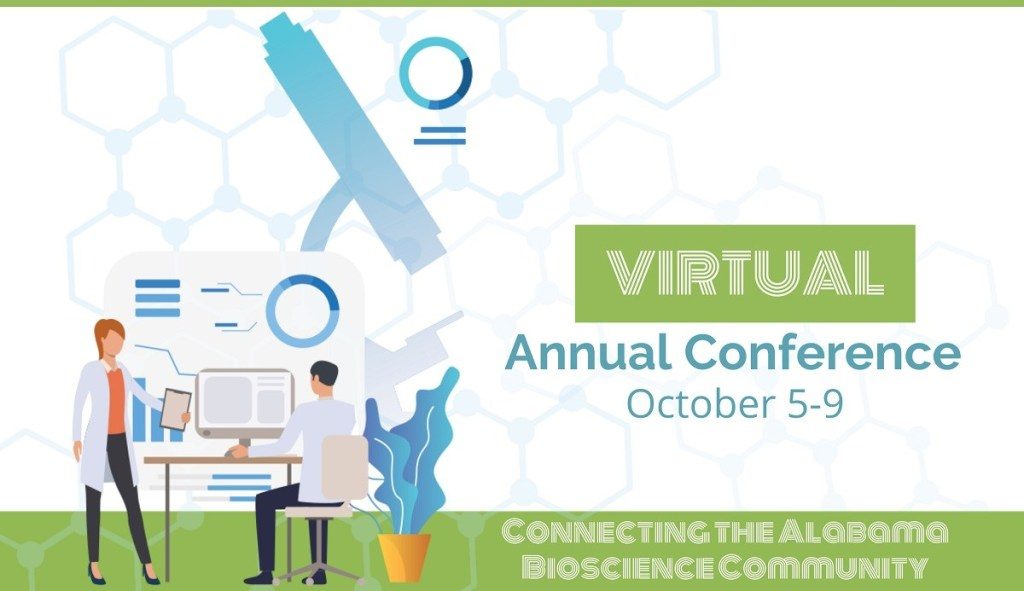
By Anthony Cook
Alabama Newscenter
As the country works its way through the COVID-19 pandemic, U.S. Sen. Doug Jones of Alabama says the crisis is an opportunity to learn from past mistakes and be more innovative, especially in the field of science and in the bioscience community.
“The pandemic put a spotlight on the supply chain when many places couldn’t get surgical masks and breathing machines when they needed them,” he said. “I think we got complacent that we were immune from pandemics. We’re not going to go back to a situation where we don’t have an adequate supply. As we come out of this, there’s an opportunity for states like Alabama to be on the cutting edge.”

The senator was part of a virtual fireside chat Monday, the first day of a weeklong BIO Alabama conference titled, “Connecting the Alabama Bio Science Community, Virtually.” BIO Alabama Executive Director Sonia Robinson hosted the session, which was led by BIO Alabama President and CEO Michelle McMurray-Heath, who interviewed Jones.
BIO Alabama is the leading advocate for Alabama’s bioeconomy, representing the state on a national and international stage to promote the intellectual and innovative capital that makes Alabama a premier place to invest, start and grow in bioscience.
Sessions scheduled for the week include “Innovate Alabama – Growing the State’s Technology and Entrepreneurship Ecosystem through Collaboration and Smart Policies” on Tuesday; “Good Things in Small Packages – Drug and Gene Delivery in the Age of Nanotechnology” on Wednesday; and “Innovation and New Knowledge: A Bold Vision for Alabama” on Thursday, among many others.
Other notable speakers include Bob Hess, vice chairman of Newmark Knight Frank, a commercial real estate advisory firm; and Dr. Regina Benjamin, 18th U.S. Surgeon General. Find more information or register for the conference here.
The pandemic, how it has disproportionately affected minority communities and how researchers, scientists and business leaders can help address the issue provided the backdrop for Jones and McMurray-Heath’s conversation.
“We saw early on how testing was not done across all communities,” Jones said. “If we’re gonna have a vaccine that’s effective, we gotta make sure everybody gets it.”
Earlier this year, Jones sponsored bipartisan legislation mandating that health plans cover services to prevent or diagnose COVID-19 within 15 days. Previously, plans had up to a year to cover those services.
He said it’s also important to get minority communities to participate in clinical trials for developing a vaccine.
“We’re behind the curve,” he said. “Candidly, we’ve not got the best history in this country when it comes to trials for vaccines. We have to have a plan in place to distribute to all of our communities. So many feel that they are often overlooked, and often they are. It’s important not only for physical health, but mental health as well. They know they’re on the front lines, too. They’re important and they’re equal.”
Jones said the bioscience community can play a role in leveling the playing field.
“Minority-owned businesses suffer from the inability to have capital to not only start a business but to sustain a business,” he said. “That’s something we’ve been looking at. … How do we make sure that businesses in the minority community can start up and survive?”
Jones said intentionality is the key to making sure minorities are included in efforts to grow Alabama.
“In Birmingham, the mayor and larger businesses like Alabama Power and Regions Bank have formed a program called VITAL,” he said. “It’s about inclusion, to try to encourage more entrepreneurship and include them more in what they do, and I think bioscience can do the same thing.”

McMurray-Heath asked Jones about the importance of bio-equality and helping scientists who want to become entrepreneurs make that leap while also encouraging minorities in those programs.
“We want to encourage the professionals to not only mentor but partner with those folks,” he said. “It’s that collaboration that is so important. It’s about recognizing that they have dreams and that we can help those dreams come to fruition.”
Jones said education is the key to growing minority participation in the field of science.
“We have to get kids at an early age,” he said. “I’ve been at HudsonAlpha, and they have programs with kids across the state to stimulate their brains and get them thinking that science can not only be something they’re interested in, but also something to help others.”
Jones said it’s the combination of scientific research and education that will provide the future that Alabama needs and deserves.
“When I was growing up, I never dreamed Alabama would be the place where we make cars. Now we are the fifth-largest auto producer in the nation,” he said. “If we did that for automobiles, we can do it for healthcare. You guys (at BIO Alabama) have the magic that you can show folks and capture their imagination.”



